Formula Student at the Hockenheimring gives budding engineers the opportunity to showcase their car-building skills. For FUCHS, this is a good reason to sponsor students. It’s a matter of investing in not only German engineering skills, but also the jobs of the future.
Racing cars zoom around yellow cones, the rear wings trembling as the drivers speed into the bends. Cheering and rallying cries ring out from the stands; people take photographs and chat excitedly. The spicy aroma of kebab fills the air, as hungry racegoers wait for filled pita breads the size of plates in front of the “Formula Doner” wagon. Standing slightly apart from the crowds is a huddle of young students. With their fingers hooked through the barriers, their gaze is fixed on their most sacred object: the car they built with their own hands – as big as a bed, clad in black carbon and emblazoned with the number 419. A team of scrutineers has tipped the car on its side in order to check its tightness and driving stability. The electric car was built at the Karlsruhe Institute of Technology (KIT) by the young men standing behind the fence, who have all turned white with nerves. “We’re dying with excitement right now,” says mechanical engineering student Max Ehrfeld (25), when asked what’s happening. The budding engineers observe the process closely. They have to comply with all the rules and regulations. They stand a good chance of winning in the electric car category. Their racer completed the specified 22 kilometers in half an hour without experiencing any motor damage or major problems with the electrical systems.
The team from Karlsruhe is entering two other vehicles at the Hockenheimring: one conventional combustion-engine car and one autonomous car.
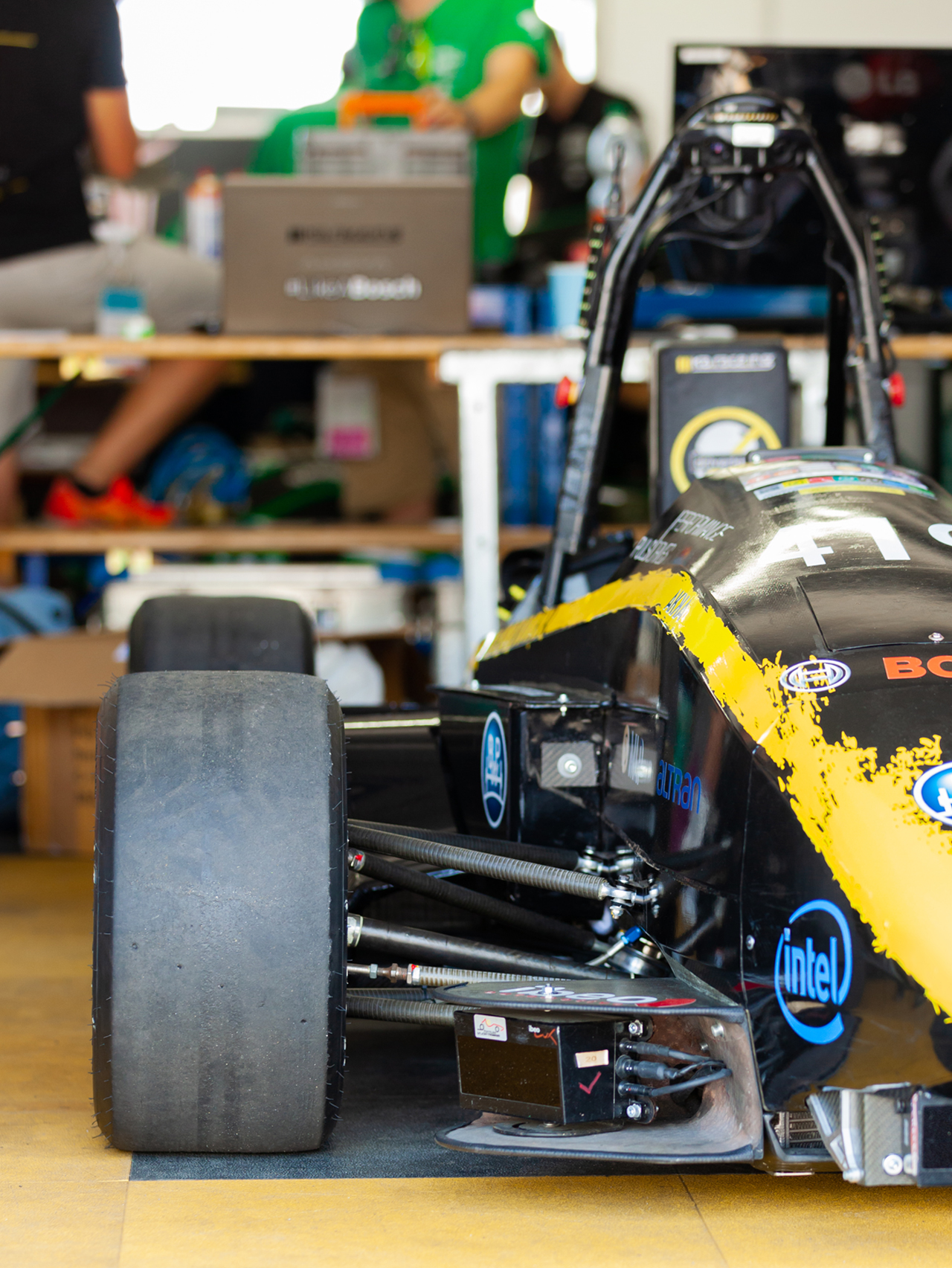
The autonomous racing car of KIT Karlsruhe's KA-Racing Team
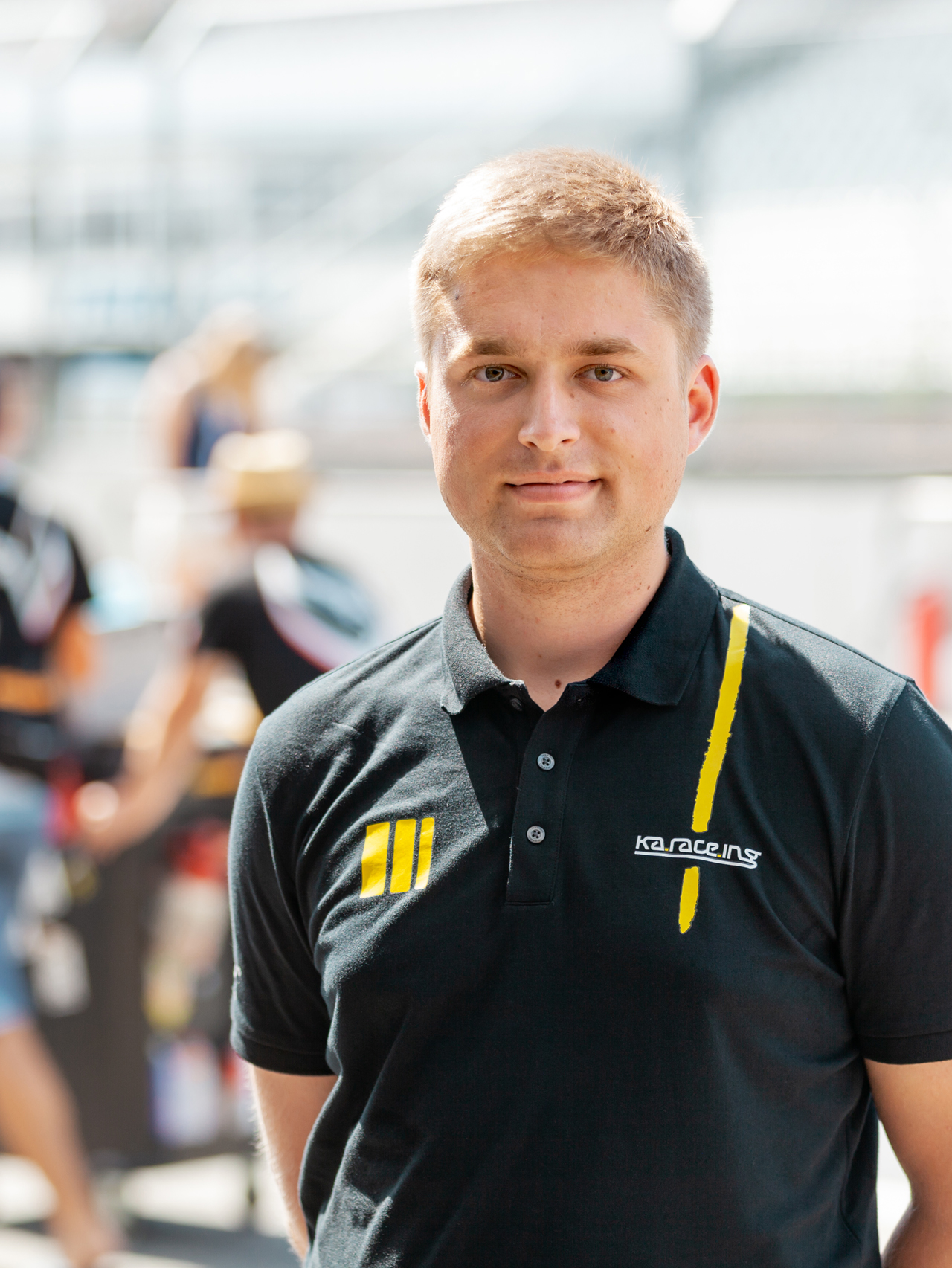
Matthias Kagon, Chief Financial Officer and Cost Reporter of the KA-Racing Team, KIT Karlsruhe
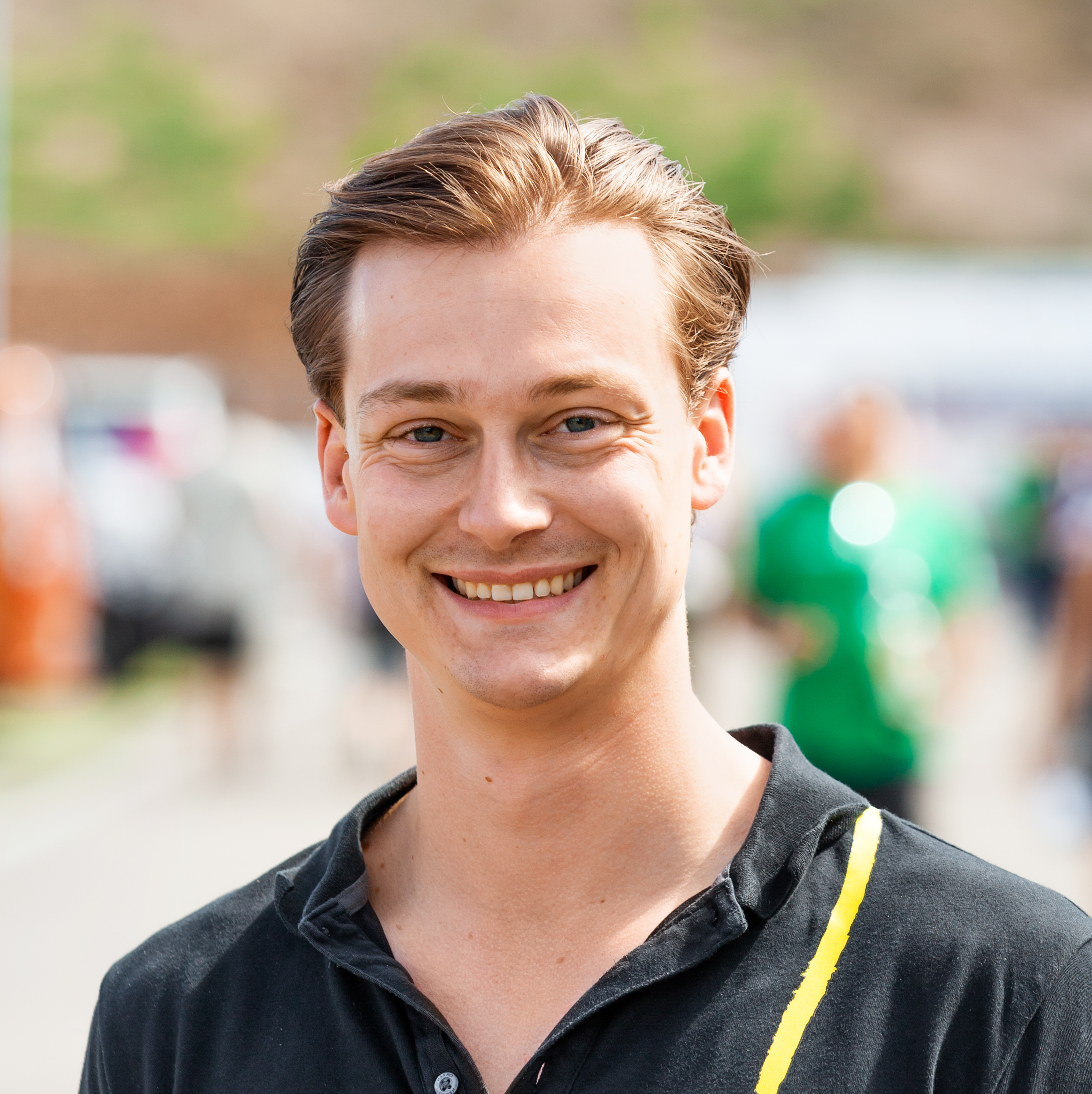
“No seminar can teach you what you learn here.”
Support from the world of business
Once a year, more than 100 university teams gather at the Hockenheimring to show off their self-built cars. Organized into racing teams, the budding engineers, mechatronics engineers and IT specialists tinker with and fine-tune their cars. Some of the teams have come all the way from India and China, shipping their cars to Baden-Württemberg to showcase their automotive engineering skills. Hockenheim is renowned worldwide as a legendary circuit where Formula 1 racing drivers such as Lewis Hamilton and Sebastian Vettel compete.
But without the right sponsors, Formula Student would not be possible. In addition to Bosch, Mercedes-Benz and Volkswagen, many companies have stepped in to provide the talented students with support. This year, FUCHS offered to sponsor two teams. In addition to a full range of lubricants, the students are also given professional advice from the company on specific issues as they build their vehicles.
“Up-and-coming talent with fresh ideas is vital for the mobility of the future.”
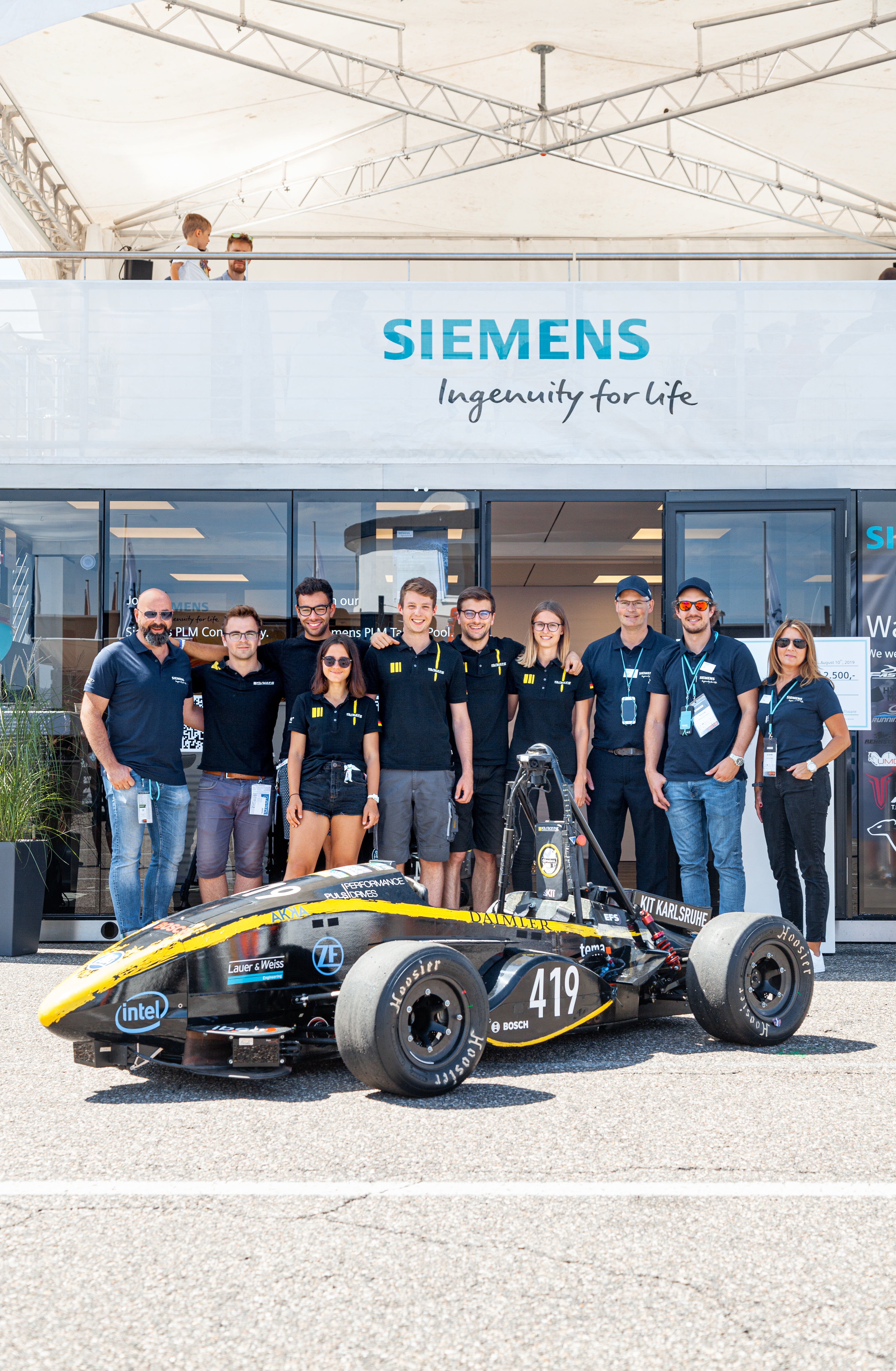
KA-Racing Team, KIT Karlsruhe
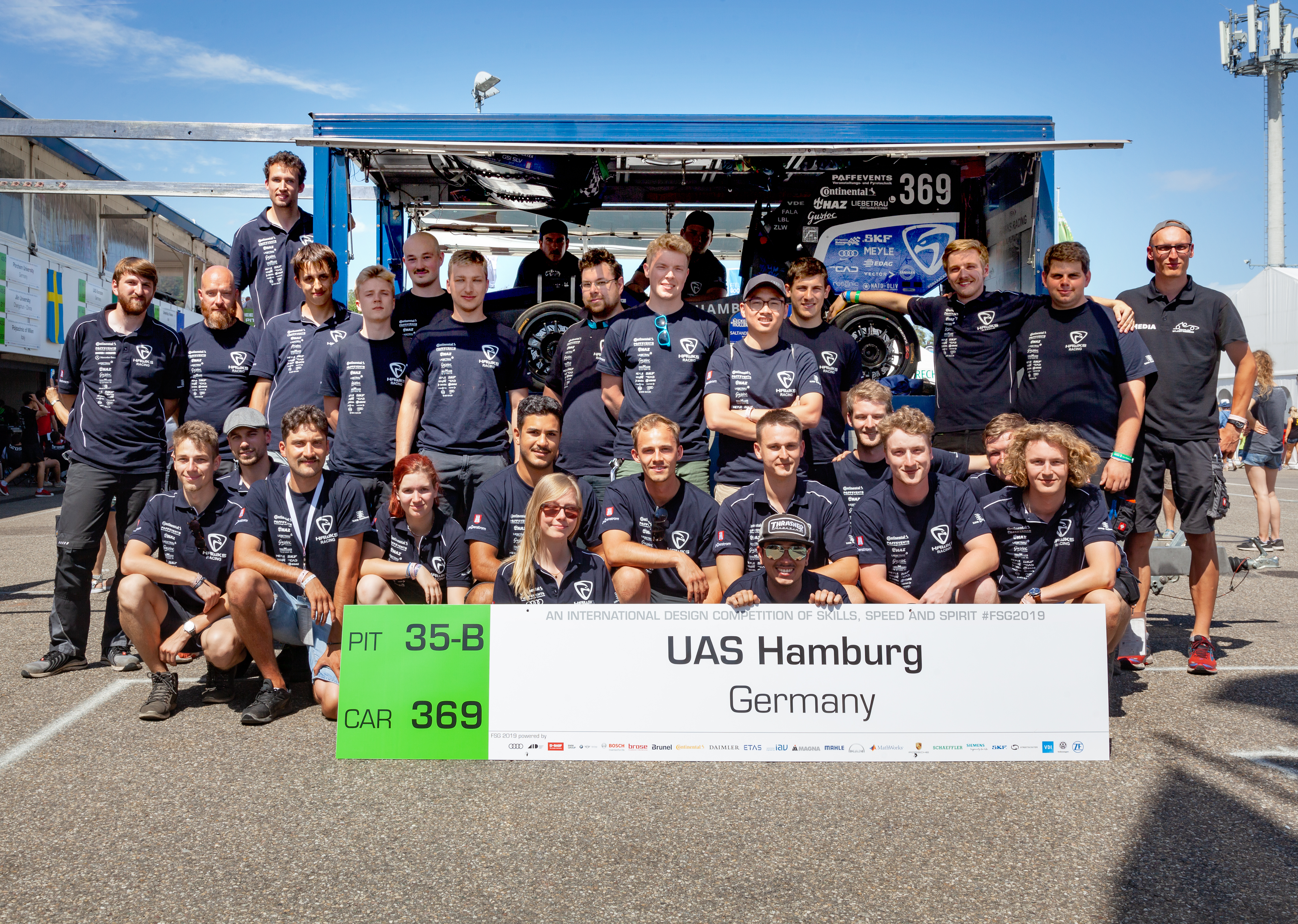
HAWKS Racing Team, HAW Hamburg
It’s about more than just winning
Before the race at the Hockenheimring, the cars are designed, built and refined over a period of months at the universities. For the students, it’s all about satisfying scientific curiosity and putting their skills to the test on a real race track. “No seminar can teach you what you learn here,” says Max Ehrfeld. If he could choose any job, it would be in the aerodynamics team at Porsche. And right now, there’s no better preparation. Using a load cell, he spent weeks assessing the impact of static and dynamic tensile loads on the vehicle – how the wind catches it; optimum road adherence; how the car saves fuel. This process taught him lots of really valuable lessons.
Moritz Aron (23) is also gaining important insights here. He is responsible for the transmission system in the electric vehicles. “The right lubricants play a crucial role in reducing wear,” he says, adding that the aim is to use oils with low viscosity. As low-viscosity oils flow better, there is less internal friction. After all, another key factor in the competition is keeping wear to a minimum to generate maximum efficiency.
Fellow colleague Sherif Nekkah (23), who headed the software team for the Karlsruhe students, even ventured into a completely new area. Before this project, he had no programming skills whatsoever and instead learned everything he needed to know while preparing for the race. “At first, getting an autonomous vehicle on the starting grid seemed like an impossible task,” he says. The “robot” racing car was fitted with a laptop, lidar sensors and a radio control unit. The technology successfully detected most of the bumps and obstacles on the Hockenheim track, although the car ultimately failed to make the grade due to a faulty radio link and broke down. A replacement part could not be found quickly enough. Nonetheless, KIT had taken second place the previous day, with only ETH Zurich collecting more points.
Setting up a Formula Student team is about more than just getting the right car-building and engineering knowhow. When you have an 80-strong team building three separate vehicles, good management is essential. Laura Vosseler (25) was responsible for the marketing activities. Even though, as a student of business engineering, she is more than capable of getting hands-on with car-building, it was this mammoth coordination task that really appealed to her. Laura Vosseler developed business plans and took care of social media channels as well as potential partners. “When so many students come together like this, it’s inevitable that teams and hierarchies form – and that requires leadership,” she says. And, of course, the necessary resources.
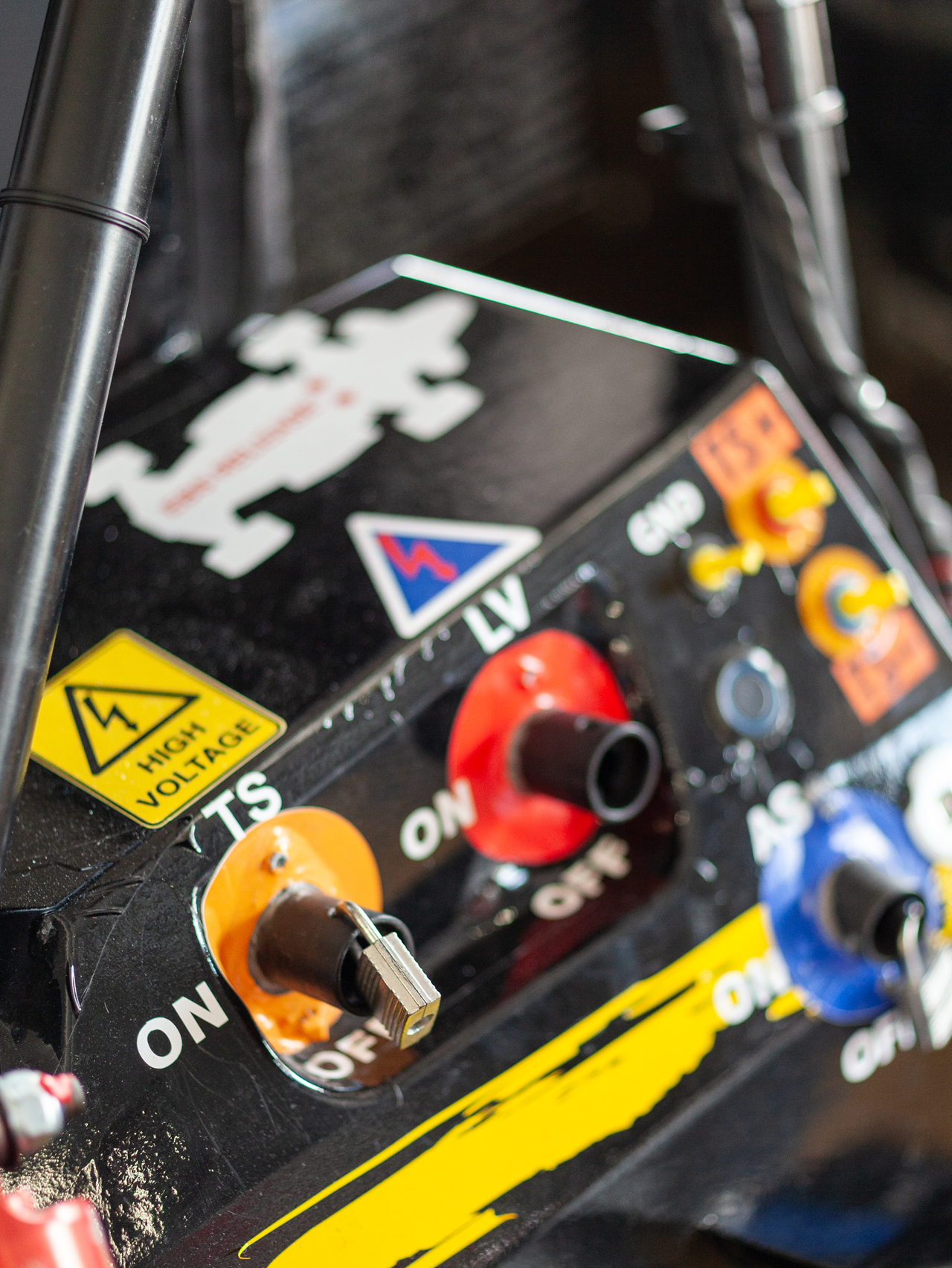
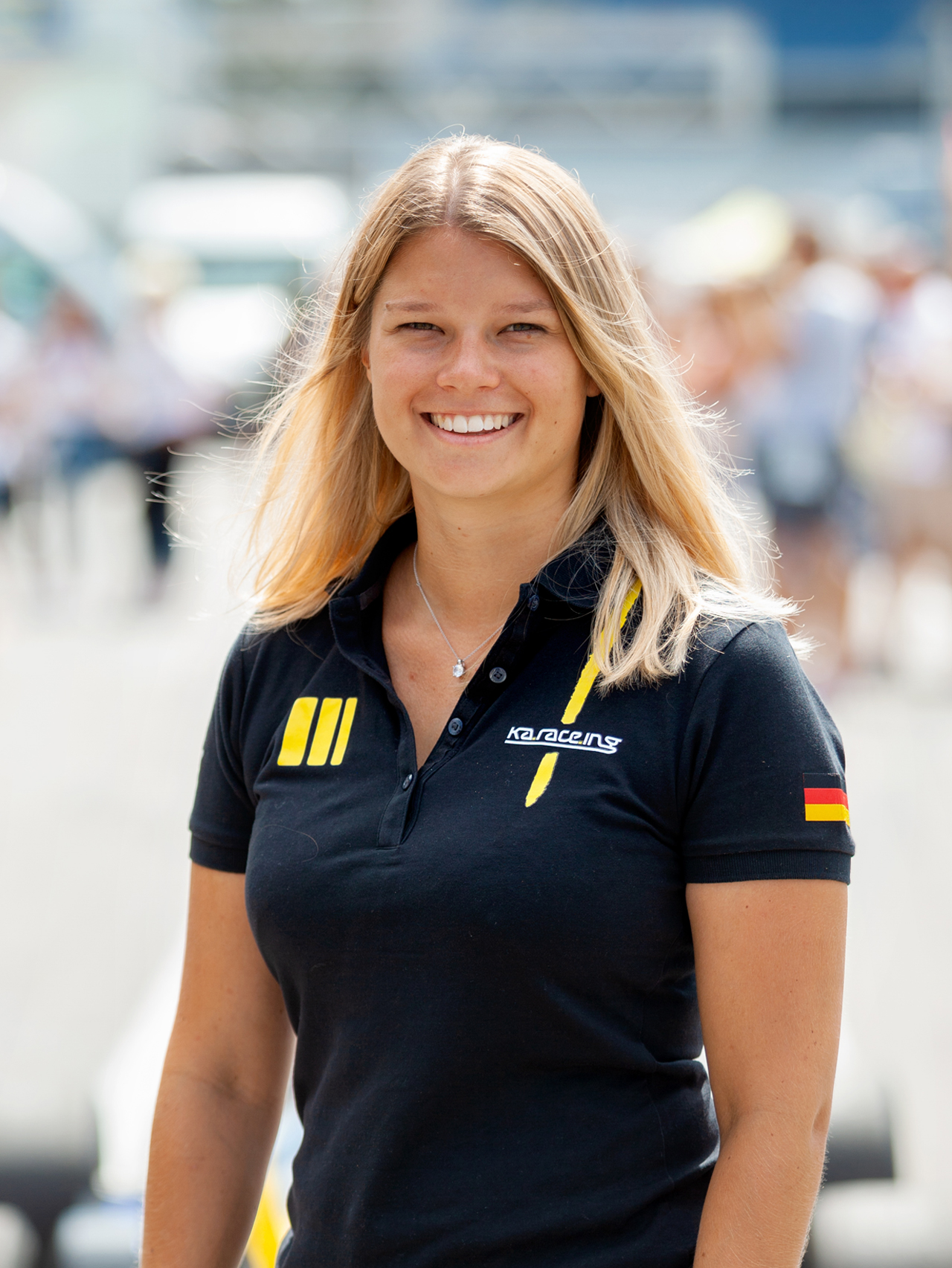
Laura Vosseler, Team Leader and Business Planner of the Ka-Racing Team, KIT Karlsruhe
“An autonomous vehicle on the track? At first, this seemed like an impossible task.”
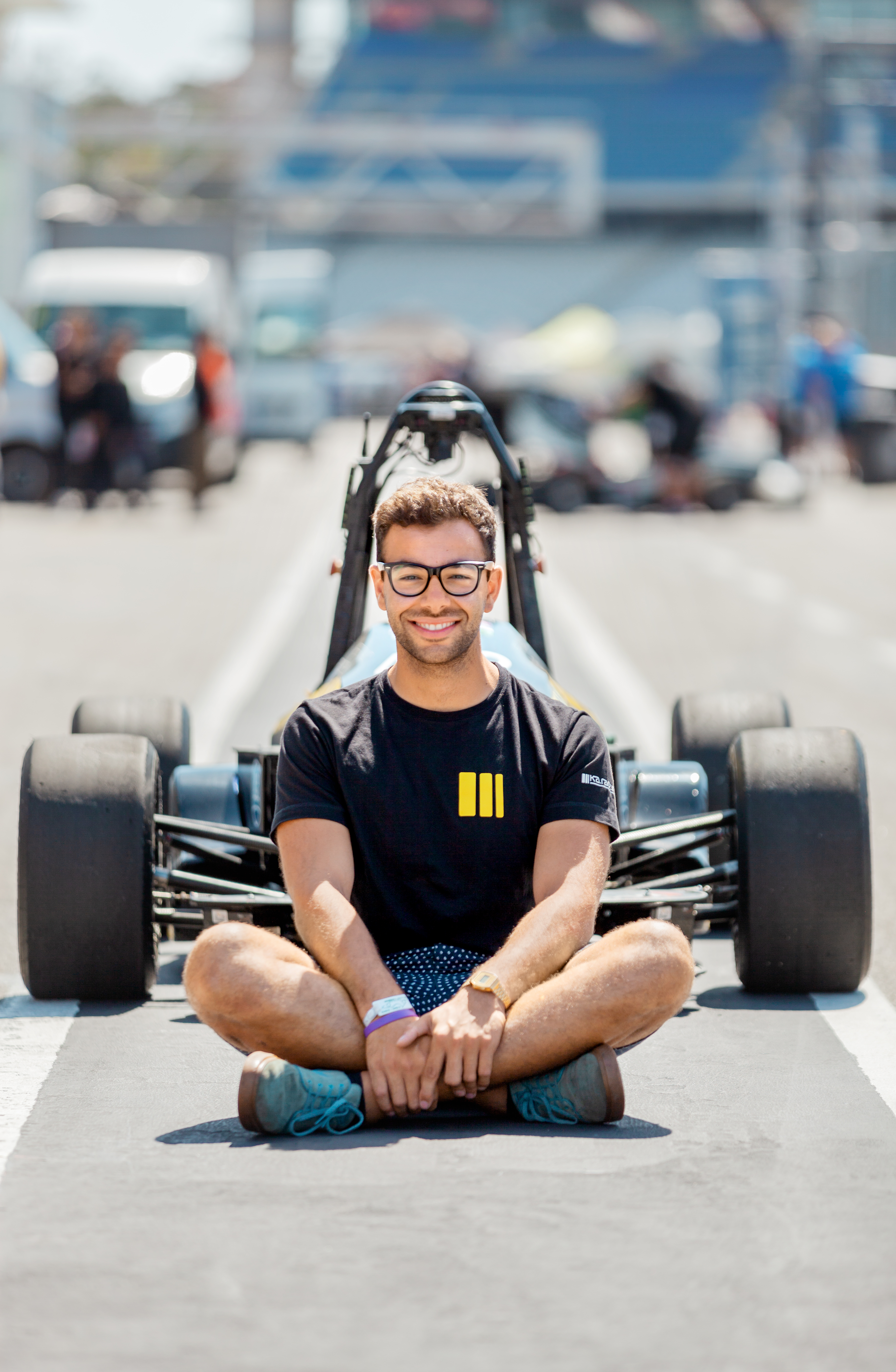
Sherif Nekkah, Team Leader AS and Simulation, Ka-Racing Team, KIT Karlsruhe
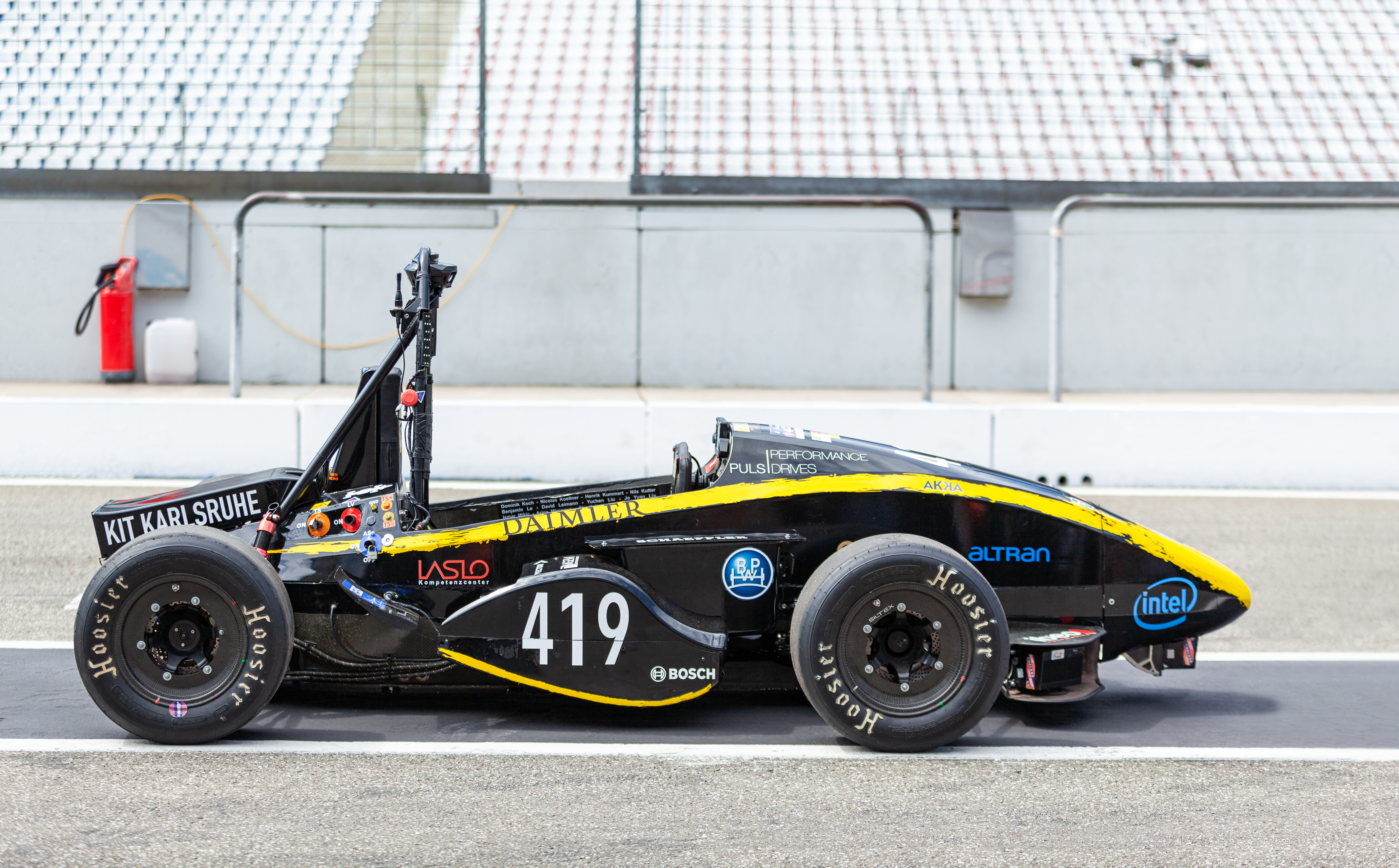
Self-driving missile: equipped with a laptop, lidar sensors and radio control
Once a Hawk, always a Hawk
The Hawks team also received vital support from FUCHS. After ten months of preparation, the students from the Hamburg University of Applied Sciences (HAW Hamburg) competed in the “combustion engine” category. They dubbed their 207-kilogram car “Vera.” And ultimately, it was Vera’s engine that caused the most trouble.
“This year’s Formula Student was a rollercoaster of emotions for us,” says Jonas Hoffmann (24). The mechatronics student still breaks out in a sweat when he recalls how they had to repair engine damage just before the start of the race. Out in the parking lot, Vera was completely dismantled and reassembled again. That took its toll on the nerves and cost the team some points, too. But what makes Formula Student so special is that a student will dedicate their entire bachelor thesis to an engine design defect in an attempt to solve the problem. And they’ll be back again next year. As the students from Hamburg say: “Once a Hawk, always a Hawk.”
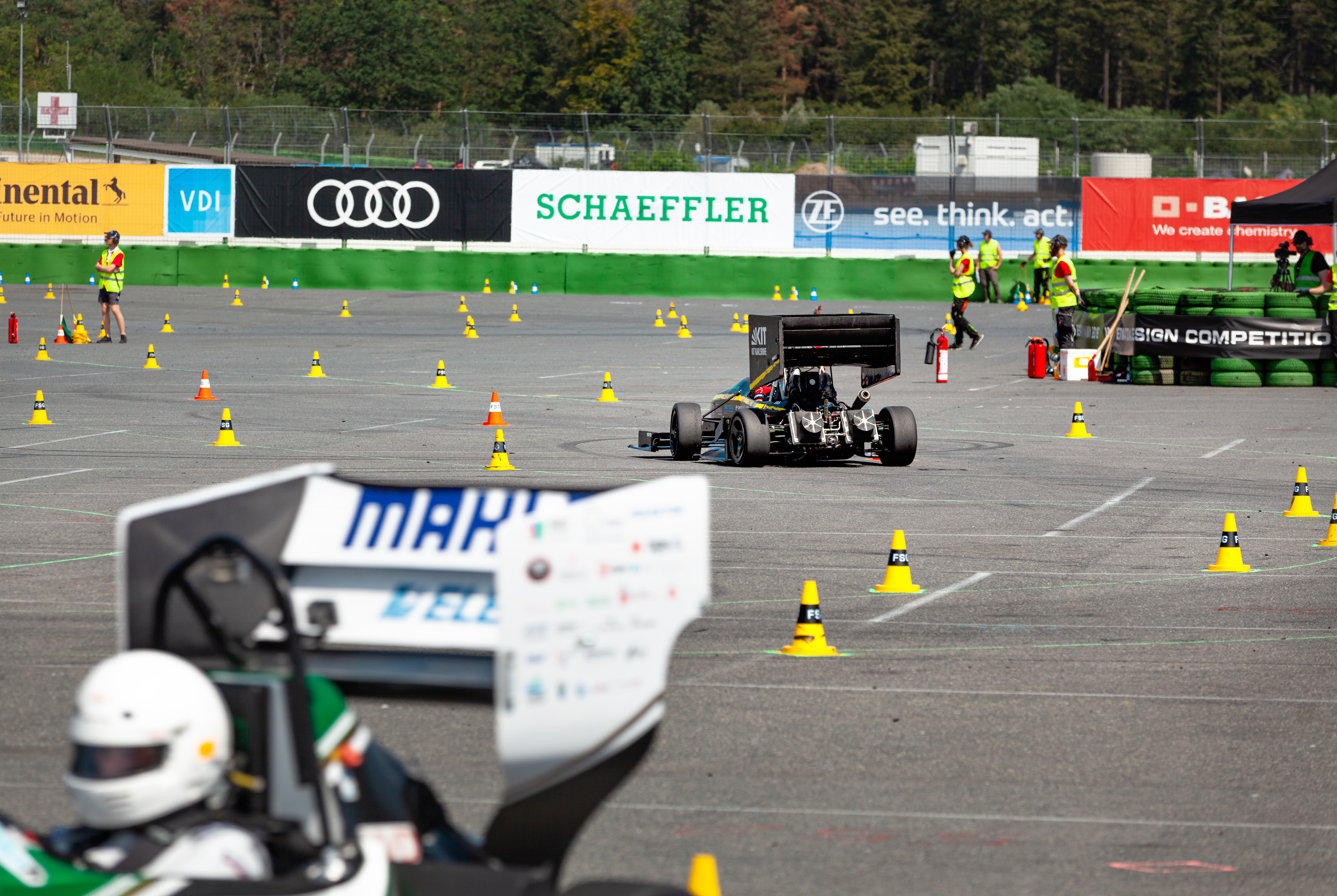
“A rollercoaster of emotions.”
JONAS HOFFMANN, HAWKS RACING TEAM, HAW HAMBURG
Goals for next year
The seven days at the Hockenheimring have visibly taken their toll on the students: seven days of camping, relentless fine-tuning and razor-sharp concentration – not to mention the odd party here and there. On the evening before the awards ceremony, aerodynamics expert Max Ehrfeld has summoned all his energy to prepare a dish of pulled pork for the farewell feast. And what about the inspections performed by the scrutineers? Painstaking, of course, but they ultimately benefited the team from KIT. Of all the electric cars that entered, only the one built by TUFast from Munich was better. In his highly professional manner, CFO Matthias Kagon states the goals for next year: “The cars need to have more test kilometers under their belts, and we will continue efforts to reduce complexity and improve reliability.”
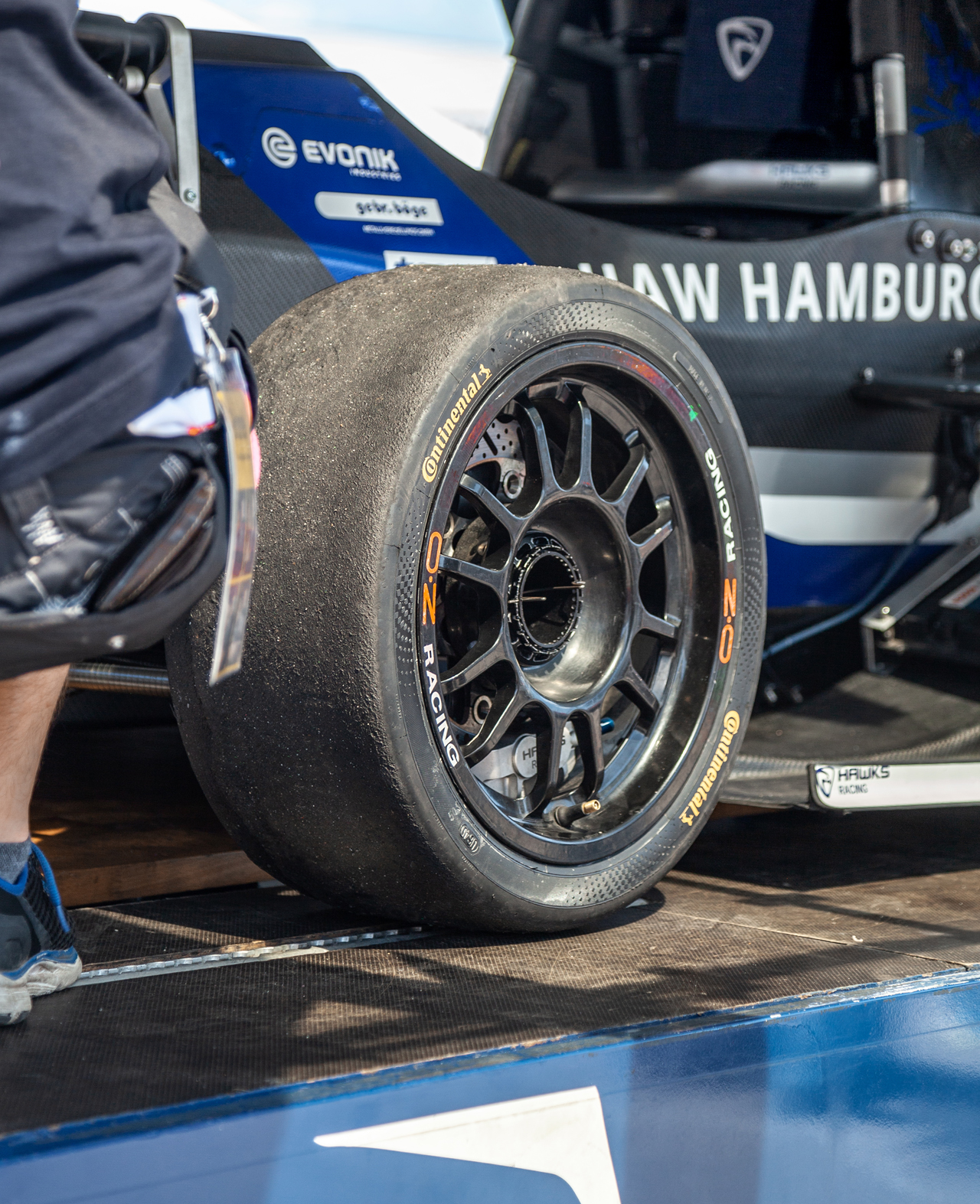
"Vera", the racing machine of the Hamburg-based HAWKS racing team
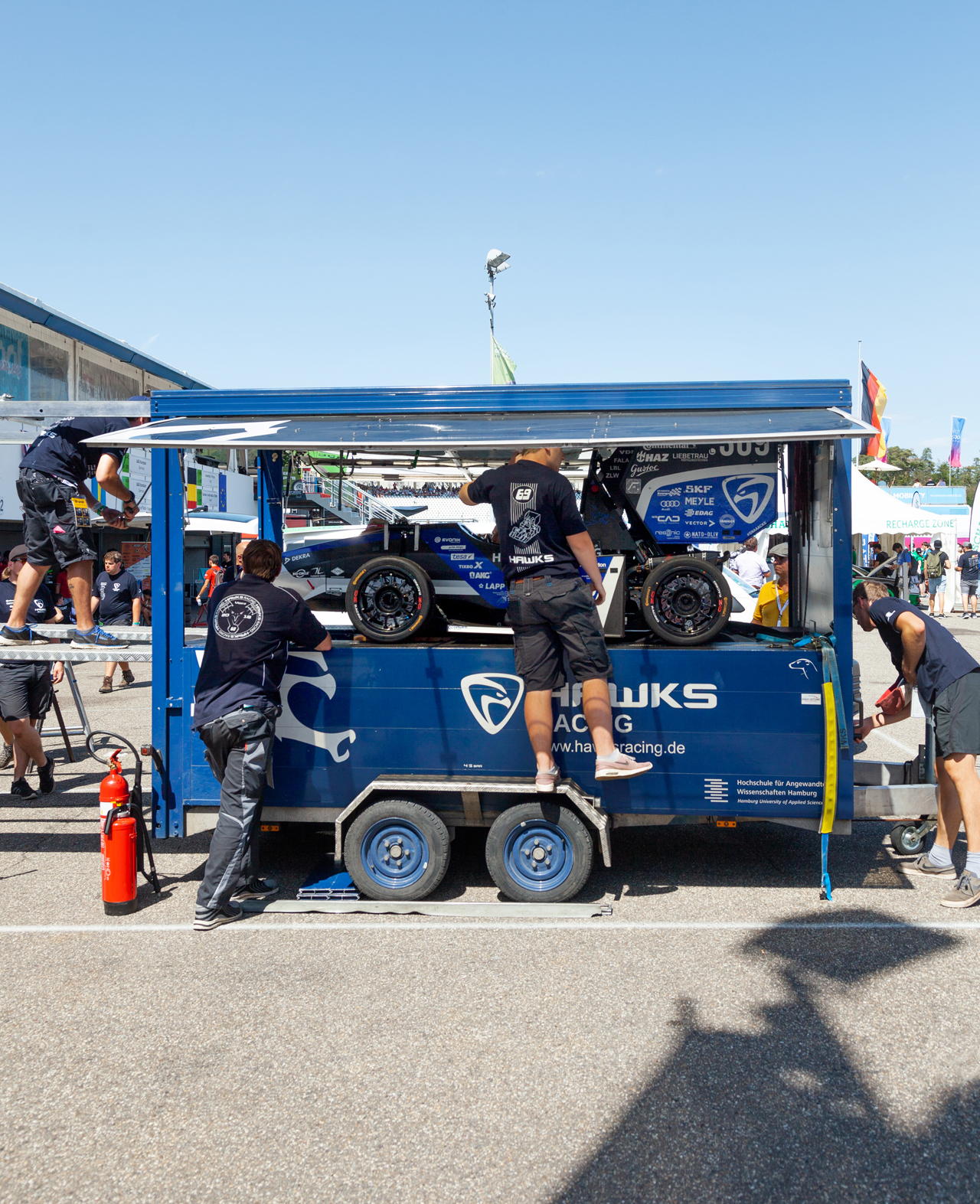
The HAWKS team from Hamburg and its combustion racing car
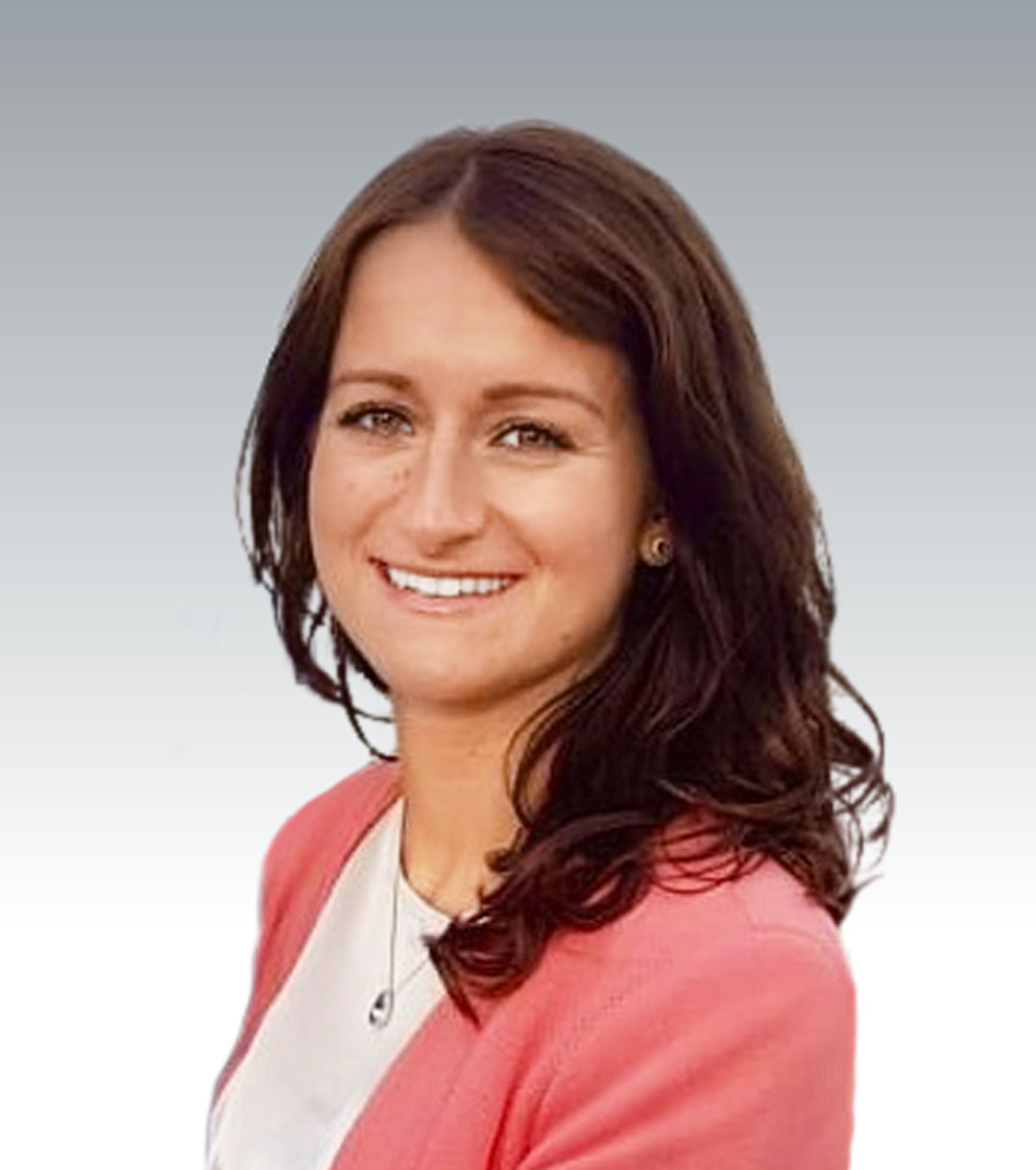
Manager Global HR Concepts & Global Support
Four questions for Jacqueline Jungmann
FUCHS supports Formula Student Germany. What are the ambitions and goals here?
In Formula Student Germany, racing teams collaborate on projects with tremendous dedication. For us, it’s important to encourage these highly motivated and committed students because this initiative allows them to gain important interdisciplinary experience and develop new skills in a wide range of areas. The combination of theory and practice greatly improves their chances of getting their professional careers off to a successful start – a career that could, of course, start at FUCHS.
How exactly do you support the racing teams?
With more than 10,000 products, we offer a full range of lubricants and support the teams with products from across our portfolio. As part of our sponsorship activities, the experts from our specialist departments also provide professional advice relating to specific lubricants.
What sort of talent are you looking for?
We see many of the students in the racing teams as potential applicants. In addition to motivated young engineers, we are also interested in talented individuals from operations-related areas who have practical experience.
Why is Formula Student such a good match for your corporate culture?
Formula Student gives students possessing strong specialist knowledge the opportunity to work within different disciplines as part of a network. They also pursue an overarching goal. The global FUCHS team also sees itself as a well-coordinated unit, where intensive dialog, trusting relationships with our customers and business partners, and huge personal commitment are the basis for FUCHS’ ongoing success.